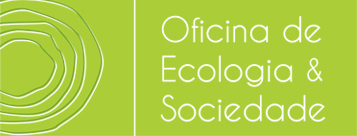Ciclo
Oficina de Ecologia e Sociedade
Outubro de 2012 a janeiro de 2013
CES-Coimbra
Resumo
This first series of reading group discussions aims at getting participants in touch with some of the basic references in Political Ecology writing, with attention to disciplinary, geographical and gender diversity. It is mainly concerned with issues of epistemology (postmodern, feminist, southern, postcolonial), while also including general overviews of the PE literature and related fields, such as Ecological Economics and Science and Technology Studies.
Programa
October 25th
Richard Peets and Michael Watts, ‘Liberation ecology. Development, sustainability and environment in an age of market triumphalism’ and Arturo Escobar, ‘Construction nature: Elements for a post-structuralist political ecology’, in R. Peets and M. Watts eds, Liberation ecologies. Environment, development, social movements, London and New York: Routledge 1996, pp. 1-69
November 15th
Charles Foucault, ‘What is Enlightenment’ and ‘Governmentality’, in P. Rabinow ed. The essential Foucault. Selections from The Essential Works of Foucault, 1954-1984, pp. viii-xxxv, 43-57 and 229-245
November 29th
P. Taylor, “Unruly Complexity. Ecology, Interpretation, Engagement” (Chicago and London: Univ. of Chicago Press 2005), chapter 6
Carolyn Merchant, “Radical Ecology. In Search for a Livable World”, London and New York: Routledge 2005, Introduction and chapter 2
December 11th
Ramachandra Guha and Joan Martinez Alier, Varieties of Environmentalism: Essays North and South, London and New York: Routledge 1997, pp. 22-45
Joan Martinez Alier, The environmentalism of the poor. A study of ecological conflict and valuation, Celtenham and Northampton: Edward Elgar, 2002, pp 213-52
January 17th
James O’Connor, Natural causes. Essays in ecological Marxism, New York and London: Guilford, 1998, pp. 121-212
Mary Mellor, 1997. ‘Women, Nature and the Social Construction of ‘‘Economic Man’’’, Ecological Economics 20: 129–40.
January 31st
Boaventura de Sousa Santos, ‘Beyond Abyssal Thinking: From Global Lines to Ecologies of Knowledges’, Review XXX, 1, 45-89
Sandra Harding, Whose Science? Whose Knowledge? Thinking from women’s lives, Ithaca and London: Cornell University Press, 1991, pp. 138-63


